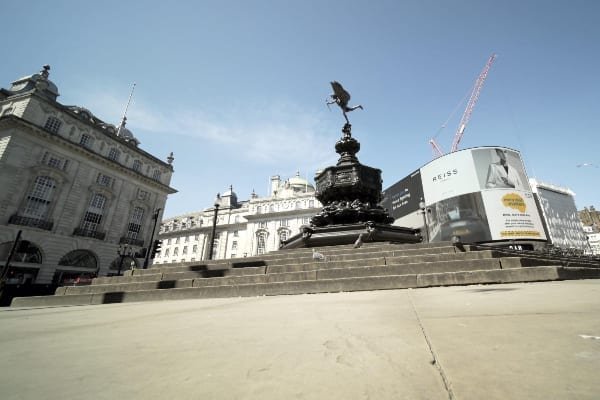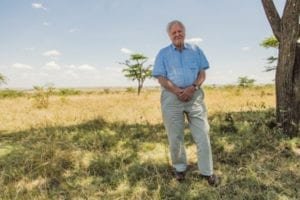Today (18 September) is the public launch date of Our Planet: Too Big To Fail – a powerful new film that directly addresses the finance sector and its role in tackling the climate and nature crisis.
Calling for urgent, systemic change across the sector, the film presents solutions for building a thriving, more resilient economy in the wake of the pandemic – one that moves away from funding the destruction of the same natural systems upon which it heavily relies.
As well as exploring how the finance sector has contributed to nature’s decline, the film also highlights the importance of nature to our global economy and the catastrophic risks to our financial systems if we choose to ignore it.
Warnings ‘flashing red’
The 40-minute film combines spectacular footage of the natural world with thought-provoking interviews from some of the most influential names in the sector.
Contributors include: Sir David Attenborough (naturalist and broadcaster), Mark Carney (while in capacity as governor, Bank of England), Richard Curtis (award-winning film writer, director and co-founder of Make My Money Matter), Hiro Mizuno (while in capacity as executive managing director and CIO of GPIF), Steve Waygood (chief responsible investment officer at Aviva Investors), Bevis Watts (CEO of Triodos Bank UK) and Catherine Howarth (chief executive of ShareAction).
The film has been created by WWF and natural history filmmakers Silverback Films – the same team behind the award-winning Netflix documentary series Our Planet and the upcoming feature film David Attenborough: A Life On Our Planet.
It comes as WWF’s 2020 Living Planet Report recently revealed that since 1970 there has been a 68% average decline in global wildlife populations, and the extraction of living materials from nature has tripled. At the same time, climate change has accelerated, putting further pressure on ecosystems and biodiversity.
‘We can’t ignore the warnings from science when they’re flashing red. Without the finance sector getting on board to help tackle the root causes of the climate and nature crisis, things will only get worse. It’s vital that the sector moves away from short-term interests and towards long-term value creation and sustainable recovery which benefits people, the economy and the planet.’
RAY DHIRANI
Head of sustainable finance at WWF-UK
‘The biggest risk is inaction’
Since the Paris Agreement was signed in 2016, the largest UK banks have financed over £160 billion in fossil fuels. This number rises to $2.7 trillion globally.
Mainstream awareness within the finance community regarding its impact on the planet remains low and action needs to accelerate.
 Play Video about This Rock Might Just Save The World
Play Video about This Rock Might Just Save The World Play Video about Play 2 hours of rock
Play Video about Play 2 hours of rock Play Video about Play 2 hours of brook
Play Video about Play 2 hours of brook Play Video about Play 2 hours of sheep
Play Video about Play 2 hours of sheep















































